- Home
- Isaac Hooke
Planet Killer (A Captain's Crucible Book 4) Page 5
Planet Killer (A Captain's Crucible Book 4) Read online
Page 5
Jonathan felt one of his eyebrows arch. “Do tell.”
“We’ve implemented several updated safeguards for dealing with telepaths. We’ve released upgraded spacesuit specs, incorporating the psi shielding your chief scientist developed. Avengers and mechs have received similar specs detailing changes to their cockpits. All navy vessels are to incorporate the upgrades immediately. The bridges and CDCs of every warship are receiving similar shielding treatment.” CDC stood for Combat Direction Center.
“You’d think the thick radiation armor on the Callaway’s bridge would have been enough to stop someone like Barrick,” Jonathan said.
“The armor wasn’t designed to repel the long wavelengths of telepathy,” Levieson said. “We never thought it would have to.”
“Aren’t we missing out on the cheapest and most obvious solution at the moment?” Jonathan said. “Banning telepaths from serving aboard our vessels?”
“Telepaths are no longer allowed to serve aboard flagships,” Levieson said. “And a few of the more powerful telepaths have been reassigned to shore billets, just to be on the safe side.”
Jonathan frowned. “So you’re spending all this time and resources to add psi shielding to the bridge of the Leviathan, when we won’t be carrying a telepath aboard at all?”
“That’s correct,” the vice admiral said. “I’m never been one to question the safety measures of the navy. In fact, I’ve already instructed the Leviathan’s captain to install shielding in the flag quarters, and this office, when the bridge work is complete. Never hurts to err on the side of caution. We’re future proofing the ships, here: I fully expect telepaths will be allowed to serve aboard flagships again at some point.” He sat up straighter. “Oh, and did I mention that all the Avenger fighters aboard the battle group ships are equipped with the charged fields pioneered by your very own Lieutenant Harv Boroker?” Harv was the Callaway’s chief weapons engineer, who had come up with a way to repel Raakaarr particle beams via charged fields. But because of power requirements of said fields, the innovation was restricted to fighter craft, and could not be generated around starships. The alien fighters didn’t possess any such defenses, not that they needed them: humanity didn’t have a single ship-ready particle beam weapon.
“Good to hear,” Jonathan said distractedly. He steepled his fingers. “Tell me, has NAVCENT put any consideration into the threat posed by the Elder?”
Levieson seemed puzzled. “Threat?”
“Their warning to pass judgment upon us, and to determine whether or not we are worthy of the planet killer. I thought you watched the archives I brought back?”
“Oh.” Levieson waved a dismissive hand. “Yes I have. I know all about that so-called warning, and so does NAVCENT. It doesn’t factor into our strategies whatsoever. The warning is too vague to mean anything. It’s one of those things, you know, damned if you do, damned if you don’t. Besides, the Elder reside in another galaxy. It’s hard to take a threat from them seriously.”
“But you should take it seriously. They can very easily travel here by editing the endpoints of their Slipstreams.”
“You really think they would destroy our entire race?” Levieson said. “If they found us unworthy?”
“Barrick said they’d knock us back to the dark ages at the very least. If they didn’t obliterate us entirely. And they gave the same warning to the Raakarr, apparently. I guess they don’t want the Raakarr getting their hands on a planet killer.”
“But given the vague wording of the warning, that could be precisely what they want,” Levieson said. “We have no idea if these Elder are belligerent, or peaceful, given what little you learned from them in your last encounter.” Levieson scratched his right eyelid. “Well, either way, I’m sure the combined weapons capabilities of the fleet could readily eliminate any Elder ship that ever decided to present itself.”
“Really?” Jonathan said. “And how did you arrive at that conclusion? We never saw it fire a weapon. Not once. But we can guess, given the advanced propulsion system the ship had, that its weapons are going to be at least as advanced.”
“I have faith in human ingenuity,” Levieson said. “If the Elder ever attack, we will prevail. But this is all pointless conjecture at this point, anyway. As I said, the warning wasn’t specific enough. The Elder didn’t outline the scenarios that would make us ‘worthy’ of the planet killer. We can’t assume anything at this point. So we’re not going to.”
Jonathan sighed, then he placed his hands on the armrests. “So what’s my role in all of this?”
“You’ll be joining Wethersfield and Barrick aboard the Talon, which will serve under my command in the battle group. You’ll function as chief liaison officer, acting as my goto between the Zarafe and the rest of the battle group. Valor must obey my orders, which you will relay to him via the telepath, Barrick. I’m effectively putting you in command of the Talon.”
Jonathan wasn’t looking forward to spending the next few months cooped up aboard that alien vessel, even if he was essentially in command.
Apparently Levieson sensed the captain’s disappointment, because he said: “I have nowhere else to put you. There’s no other ship I can give you, and the personnel bureau doesn’t want to touch your file while the reviewing authorities consider the results of the trial. If it’s any consolation, when we rendezvous with Task Group 72.5, I’ll consider reassigning you to your old ship.” When Jonathan didn’t answer, Levieson added: “Look. I need someone I can trust aboard the Talon. Preferably someone human. Not that I’m biased toward AIs like Wethersfield... all right, I admit it, I am. I’ve read your video logs, watched footage of the battles you fought while aboard their bridge. You’re the obvious choice for this. And Valor seems to like you.”
“I’m not sure I’d go so far as that,” Jonathan said.
“Well, he tolerates you at the least,” Levieson said. “And he’s followed your suggestions in the past, in the middle of space combat, when he didn’t have to. So he respects you, too.”
Jonathan rubbed his chin. “Barrick and Wethersfield must obey my orders as well?”
“To the letter.”
Jonathan nodded slowly. “What happens to Rodriguez, Rail, and Chopra?”
“Captain Chopra has been assigned the command of the Stalwart, a corvette in our battle group. She’ll be joining us on the mission. Captains Rail and Rodriguez are also coming, though they won’t be serving in any command capacity, not yet. When we rejoin Task Group 72.5 in Vega 951, the plan is to give them their commands back.”
“Assuming the task group hasn’t been destroyed by Raakarr reinforcements in the system...” Jonathan said.
“Come now Captain,” Levieson said. “Where’s your faith? You forget all those glowing reports you gave your first officer, the man you left in charge of Task Group 72.5. What was his name? Cray.”
“Even he won’t be able to do anything if he’s outnumbered ten to one,” Jonathan replied.
Levieson crossed his arms as if suppressing a sudden chill. “Did you know, we sent a task group—12.5.2—to Vega 951 to look for the planet killer when we lost contact with 72.5? We also sent a Builder with it, in case 12.5.2 needed to construct a return Gate. The United Systems wasn’t going to leave a planet killer abandoned like that.”
“The Talon saw no sign of 12.5.2,” Jonathan said.
“I know,” Levieson said. “That’s why I’m telling you this. Because you may be right, there might be nothing left of 72.5 to rendezvous with.”
“You think the Raakarr destroyed 12.5.2?”
“That would be the obvious conclusion,” Levieson said.
“But the Talon witnessed no debris in Vega 951 consistent with the task group. Sure, three enemy ships emerged from behind a nearby planetoid before we fled to Prius 3, but there was nothing more.”
“It’s possible they swept up any debris and hid it behind the planetoid as well. Either that, or they captured the ships and took them elsewhere. Chalk it
up to Raakarr aggression. That’s another reason we need to give these aliens a thoroughly bloody nose.”
“Can’t we do that without harming civilians?”
“They’ve already destroyed two of our colony worlds. We’re going to obliterate at least one of theirs in retaliation.”
“Can’t we choose a colony with a lower population? One that more closely matches the populations of the worlds we lost?”
Levieson smiled patiently. “You have to measure more than the cost of the human lives. Don’t forget the infrastructure cost necessary to create the colonies in the first place: the terraforming cost, the building and materials costs, and so forth. That said, we are willing to negotiate with the Raakarr. We’ll use our newfound allies to do so. And if the Raakarr refuse to negotiate, we’ll fight our way to the colony world and destroy it, as planned. NAVCENT has already approved the order.”
The order.
Jonathan thought back to his trial. He had won mostly because of the feelings of guilt his legal counsel had evoked in the members of the court. One hundred million human lives. How could those officers of the bench condone punishment against a captain who had refused to obey the order that would have caused such death, rendering an entire solar system uninhabitable, his lawyer had argued, when they themselves would have disobeyed? It was easy to feel that way in the moment. Of course it was an outrage, such loss of life, such stripping of a habitable system of its star. But the officers must have realized, deep down, that if actually faced with a similar moral dilemma, the pressure to obey orders, however morally reprehensible, would be immense. And they could not really know whether they would obey or disobey in that moment.
One hundred million human lives. The key word being human. The trial likely would have had a completely different outcome if it had been alien lives at stake. The loyalty one felt for one’s own race didn’t extend far beyond the species boundary.
“Think of what the Raakarr have done,” Levieson pressed. “Think of the colonies we’ve lost. We have to make an example of that alien world. We have to show them we won’t stand for aggression of any kind against our planets. But, if you truly don’t want to participate in this mission, I’ll write you a transfer request and have it sent to the Bureau of Personal ASAP. I’m sure Admiral Raen can find some work for you in his shore billet.”
At the end of the day, those lives were alien. At some point, humanity had to look out for its best interests. Levieson was right. While the figure might seem like a lot when taken on its own, five million alien lives were a drop in the bucket. Still, if Jonathan ever rendezvoused with Task Group 72.5 and returned to the Callaway, he would no doubt have many long discussions with Robert regarding the morality of it all.
“That won’t be necessary,” Jonathan said. “When do we leave?”
seven
Rade sat on the bunk of his cramped quarters aboard the Leviathan. His daughter perched in front of him, on a seat of soft leather that seemed out of place beside the flat-backed steel chair native to the room.
“Congratulations on your new command assignment,” Rade said. “The Stalwart is lucky to have you as its captain.”
“I’m not so sure about that,” Sil replied. “And honestly, I would have preferred a research vessel to a corvette. War isn’t my preferred arena.”
“We’re going to need our best for the upcoming conflict,” Rade said. “That’s why they chose you.”
“Sure,” she said. “I suppose.”
In truth, Rade wasn’t all that pleased she had been assigned to the battle group. He would have preferred she stayed behind, safe in the heart of human space, than heading to the outskirt systems to attack the aliens. Then again, he supposed at least now he’d be able to keep an eye on her. Somewhat. That would be a little difficult, seeing as how she was on a different ship and all. But at least any messages he sent would be delivered to her instantaneously, and he could have realtime talks with her like he was doing right now, whenever he wanted. Assuming she picked up.
“Do you ever think about the old days?” she asked.
“What do you mean? The old days of the navy?”
“No, not that,” she said. “I’m talking after. When you owned that crummy ship. I remember growing up in space, traveling around the galaxy with that motley crew of ex-MOTHs.”
“Ah. Those were good days, weren’t they?”
“Dad, those were some of the best days of my life,” Sil said.
Rade stared at her for several moments, then averted his gaze. “Mine, too,” he said softly.
“Not that I still don’t have amazing days, mind you,” Sil added.
“Of course,” Rade said. He had to wonder if the same was true for himself.
“I’m still not sure how mom put up with all that testosterone aboard,” Sil said. “I suppose I helped. And Surus. How many other mercenary ships could claim an alien as part of their crew?”
Rade smiled. “Not many. And for the last time, we weren’t mercenaries, we were security consultants.”
She crossed her arms. “You and your euphemisms.”
Rade shrugged.
“You never did tell me why you re-enlisted after all those years away...” Sil said.
“You haven’t figured it out by now?” Rade asked her.
She frowned. “No. How the hell am I supposed to know what goes on in that jacked mind of yours?”
“I am a mystery, aren’t I?” Rade said.
The hatch to the berthing area opened. His bunkmate, Helium, stepped inside, fresh from a workout session and shower. He nodded at Rade as he crossed the deck, and passed right through Sil’s hologram. Helium couldn’t hear or see her, but since Rade didn’t want the LPO eavesdropping on what he himself said, he activated his noise canceler.
“So come on, tell me,” Sil persisted.
“All right,” Rade said. “I fess up. I re-enlisted because of you.”
“Me.”
He sighed. “When you said you were signing up, I couldn’t let you do it alone.”
“That makes no sense,” Sil said. “You knew the chances of being assigned to the same ship as mine were basically nil, right?”
“I did,” Rade replied.
“And yet you re-enlisted anyway.”
He nodded. I would do anything to watch over my little girl.
“You pulled some strings to ensure you were part of the same fleet, didn’t you?” Sil said.
“A few,” Rade agreed.
“I’m not sure whether to feel suffocated or blessed,” Sil told him.
“Probably a little of both,” Rade said. “Though when you’ve felt suffocated in the past, you never had a problem letting me know.”
“That’s very true,” Sil said. “You’ve always given me my space.”
“And I always will.” Just as I’ll always be here for you.
“Well, I should be going,” Sil said. “I still have to review the morning updates from my department heads. Then I have to check in with the bridge crew. Then I have to— well, I won’t bore you with the details. But let’s just say, a captain never has to try terribly hard to keep busy.”
“You really should look into offloading some of the more menial stuff onto your XO,” Rade said.
“This is a United Systems Starship,” Sil said. “We run things a bit differently than a privately owned mercenary craft. My mistake, security consulting craft.”
“Thank you,” Rade said.
“Besides, let my XO have all the fun?” Sil said. “You have to be kidding me. Anyway, later dad.”
“Bye, Sil.” He disconnected and her hologram vanished, seat and all. He rubbed his eyes and then stood.
Helium looked up from his bunk. “Yo.”
“Hey,” Rade replied.
Helium nodded toward Rade’s bare chest. “Looking massive today.”
Rade glanced down. His chest was looking particularly big, at that. Sil hadn’t realized he was shirtless, of course, because he had pro
grammed a long-sleeved getup into the holographic feed.
“Thanks,” Rade replied. “It’s all about the little ‘extra’ I add to my diet.”
“I’m sure it is,” Helium said. “Horse hormones, right?”
“Basically,” Rade said. “Fleet-approved, of course.”
“Of course,” Helium said. “By the way, you might want to wander by hangar bay 8.”
“Why?” Rade said.
“They’ve got some toys worth checking out.”
Rade pursed his lips, and then grabbed a T shirt from his locker. The fabric snagged at the hardpoints protruding from his wrists, elbows and shoulders, but with some persistence he got the shirt on.
He left the cramped berthing area and took to the passageways. With the help of his overhead map, he navigated the hatches and scuttles and made his way to the appropriate deck.
His talk with Sil had stirred up some memories, some good, some bad. On the way to the hangar bay he pulled up the letter of reprimand assigned to his file and reread it for the thousandth time. That letter prevented him from ever advancing above the rank of chief.
Not that it mattered all that much. He preferred his position. He had seen so many changes, watched as the MOTHs were slowly replaced by AIs. The combat robots that passed MOTH training were just as good as humans, he had to admit. Even better in some ways. They didn’t have bothersome emotions that got in the way of obeying orders, for example. If an AI experienced guilt, remorse or other issues, a simple tweak to its conscience program fixed it good as new.
Still, he missed the camaraderie of the old Teams. AIs had their own camaraderie, sure, but it was a different kind, more... subdued. Not like the friendly competition and macho teasing he and his old platoon members used to routinely engage in.
Re-enlisting all those years ago hadn’t been easy. Sil had no idea what he had to do to return. Mental and physical factors aside, there was also the small problem posed by that reprimand letter. Even though he wasn’t dishonorably discharged, he still had to call in a favor from an old friend, then a Command Master Chief, for the privilege.

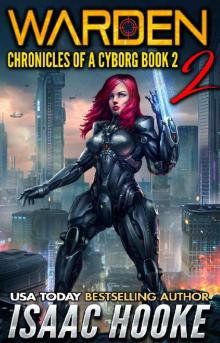 Warden 2
Warden 2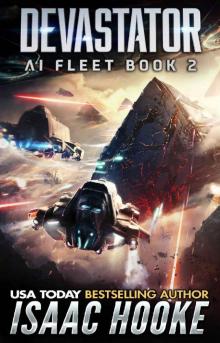 Devastator
Devastator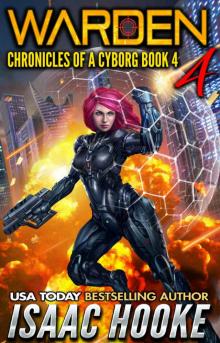 Warden 4
Warden 4 Emperor
Emperor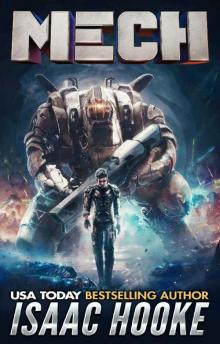 Mech
Mech Conqueror
Conqueror Fighter
Fighter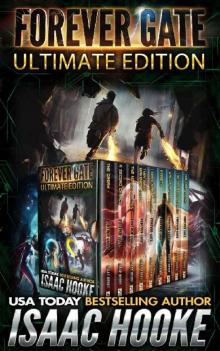 The Forever Gate Ultimate Edition
The Forever Gate Ultimate Edition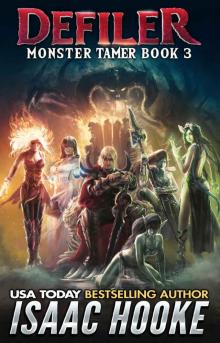 Defiler
Defiler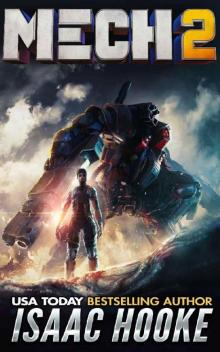 Mech 2
Mech 2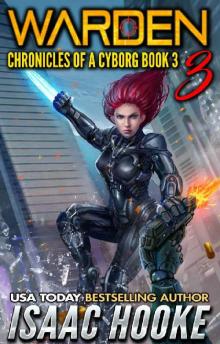 Warden 3
Warden 3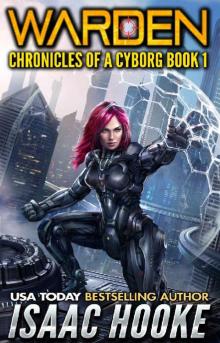 Warden 1
Warden 1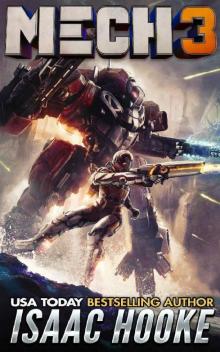 Mech 3
Mech 3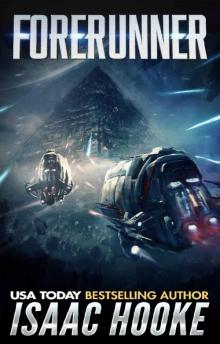 Forerunner
Forerunner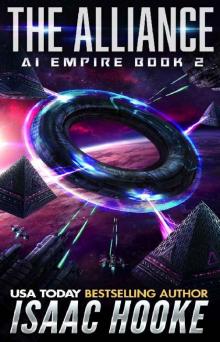 The Alliance (AI Empire Book 2)
The Alliance (AI Empire Book 2)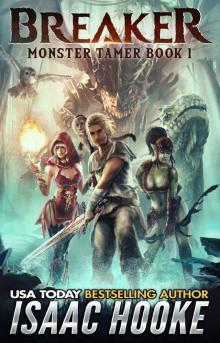 Breaker (Monster Tamer Book 1)
Breaker (Monster Tamer Book 1) Bender of Worlds
Bender of Worlds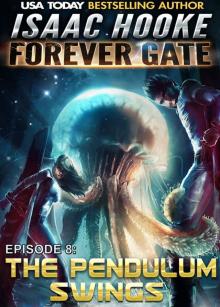 The Pendulum Swings (The Forever Gate Book 8)
The Pendulum Swings (The Forever Gate Book 8)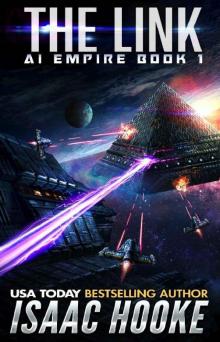 The Link
The Link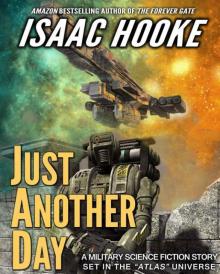 Just Another Day
Just Another Day Star Warrior
Star Warrior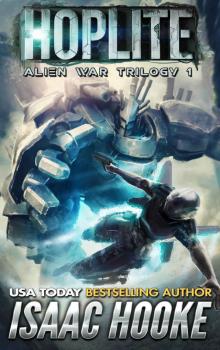 Alien War Trilogy 1: Hoplite
Alien War Trilogy 1: Hoplite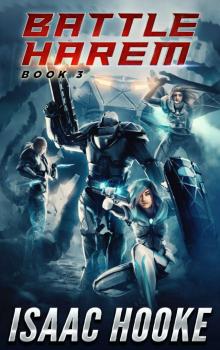 Battle Harem 3
Battle Harem 3 The Ethan Galaal Series: Books 1 - 3
The Ethan Galaal Series: Books 1 - 3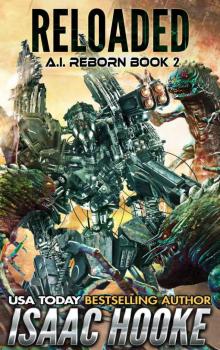 Reloaded
Reloaded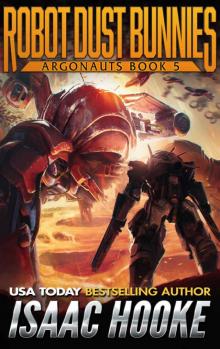 Robot Dust Bunnies (Argonauts Book 5)
Robot Dust Bunnies (Argonauts Book 5) Battle Harem
Battle Harem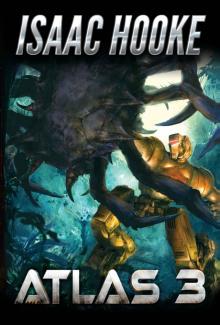 ATLAS 3 (ATLAS Series Book 3)
ATLAS 3 (ATLAS Series Book 3)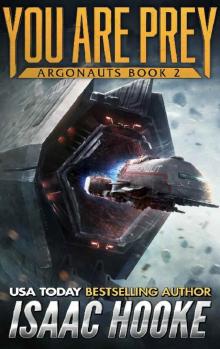 Argonauts 2: You Are Prey
Argonauts 2: You Are Prey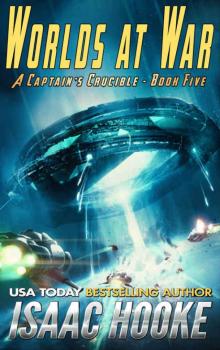 Worlds at War (A Captain's Crucible Book 5)
Worlds at War (A Captain's Crucible Book 5)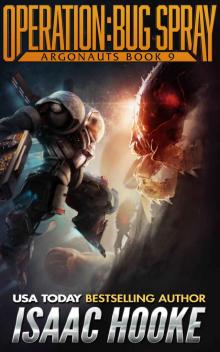 Operation: Bug Spray (Argonauts Book 9)
Operation: Bug Spray (Argonauts Book 9)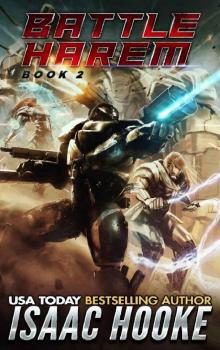 Battle Harem 2
Battle Harem 2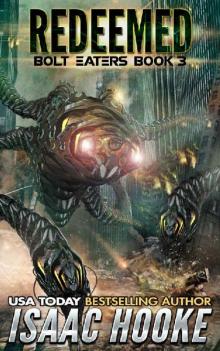 Redeemed (Bolt Eaters Trilogy Book 3)
Redeemed (Bolt Eaters Trilogy Book 3)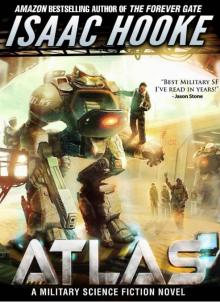 Atlas
Atlas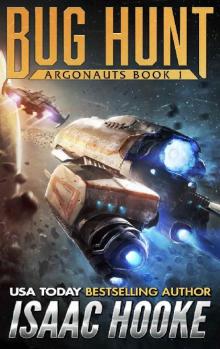 Argonauts 1: Bug Hunt
Argonauts 1: Bug Hunt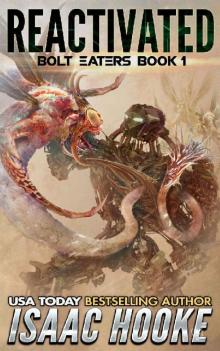 Reactivated (Bolt Eaters Trilogy Book 1)
Reactivated (Bolt Eaters Trilogy Book 1)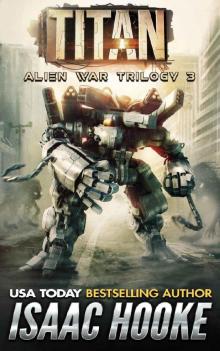 Alien War Trilogy 3: Titan
Alien War Trilogy 3: Titan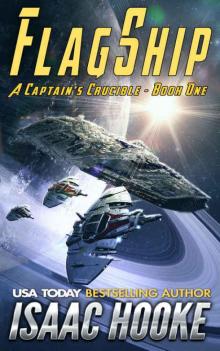 Flagship (A Captain's Crucible #1)
Flagship (A Captain's Crucible #1)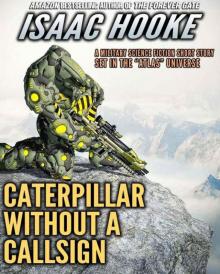 Caterpillar Without A Callsign
Caterpillar Without A Callsign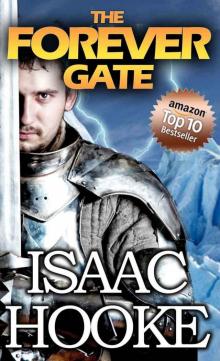 The Forever Gate
The Forever Gate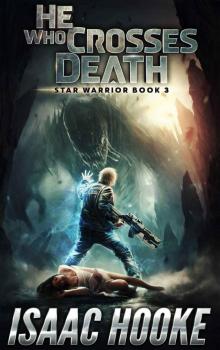 He Who Crosses Death (Star Warrior Quadrilogy Book 3)
He Who Crosses Death (Star Warrior Quadrilogy Book 3)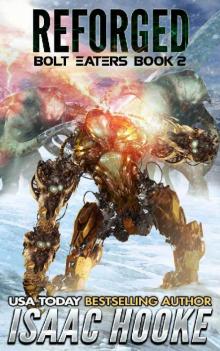 Reforged (Bolt Eaters Trilogy Book 2)
Reforged (Bolt Eaters Trilogy Book 2)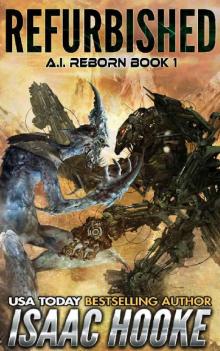 Refurbished
Refurbished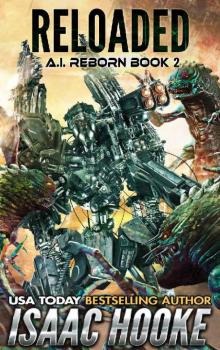 Reloaded (AI Reborn Trilogy Book 2)
Reloaded (AI Reborn Trilogy Book 2)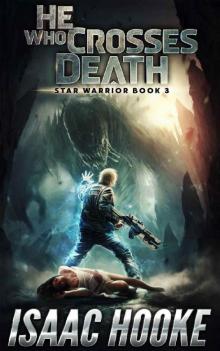 He Who Crosses Death
He Who Crosses Death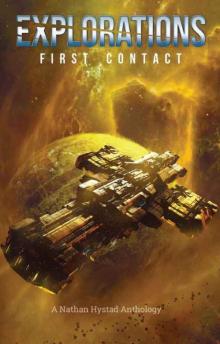 Explorations: First Contact
Explorations: First Contact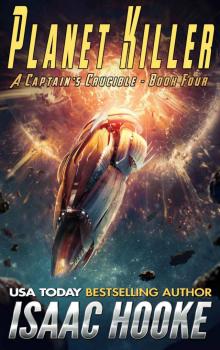 Planet Killer (A Captain's Crucible Book 4)
Planet Killer (A Captain's Crucible Book 4)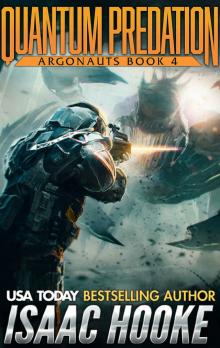 Quantum Predation (Argonauts Book 4)
Quantum Predation (Argonauts Book 4) Clandestine-IsaacHooke-FreeFollowup
Clandestine-IsaacHooke-FreeFollowup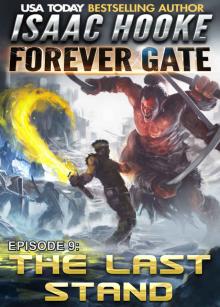 The Last Stand (The Forever Gate Book 9)
The Last Stand (The Forever Gate Book 9)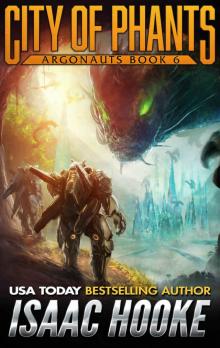 City of Phants (Argonauts Book 6)
City of Phants (Argonauts Book 6)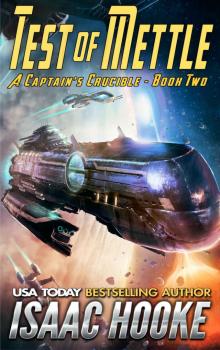 Test of Mettle (A Captain's Crucible Book 2)
Test of Mettle (A Captain's Crucible Book 2)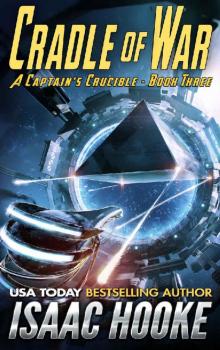 Cradle of War (A Captain's Crucible Book 3)
Cradle of War (A Captain's Crucible Book 3)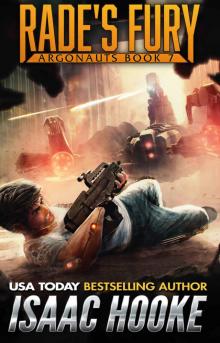 Rade's Fury (Argonauts Book 7)
Rade's Fury (Argonauts Book 7)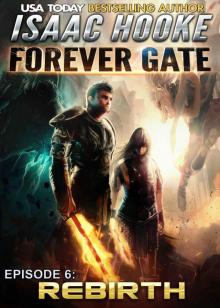 Rebirth (The Forever Gate Book 6)
Rebirth (The Forever Gate Book 6) The Forever Gate Compendium Edition
The Forever Gate Compendium Edition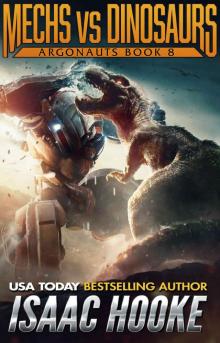 Mechs vs. Dinosaurs (Argonauts Book 8)
Mechs vs. Dinosaurs (Argonauts Book 8)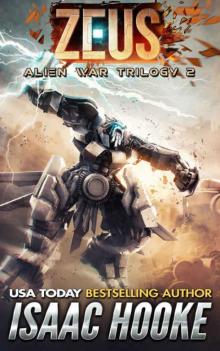 Alien War Trilogy 2: Zeus
Alien War Trilogy 2: Zeus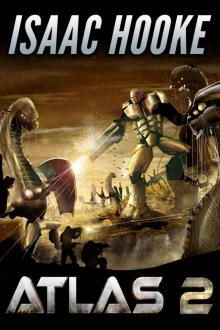 ATLAS 2 (ATLAS Series Book 2)
ATLAS 2 (ATLAS Series Book 2)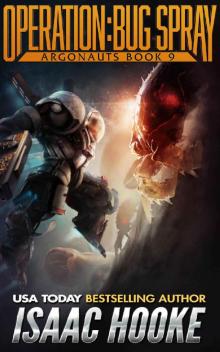 Operation_Bug Spray
Operation_Bug Spray